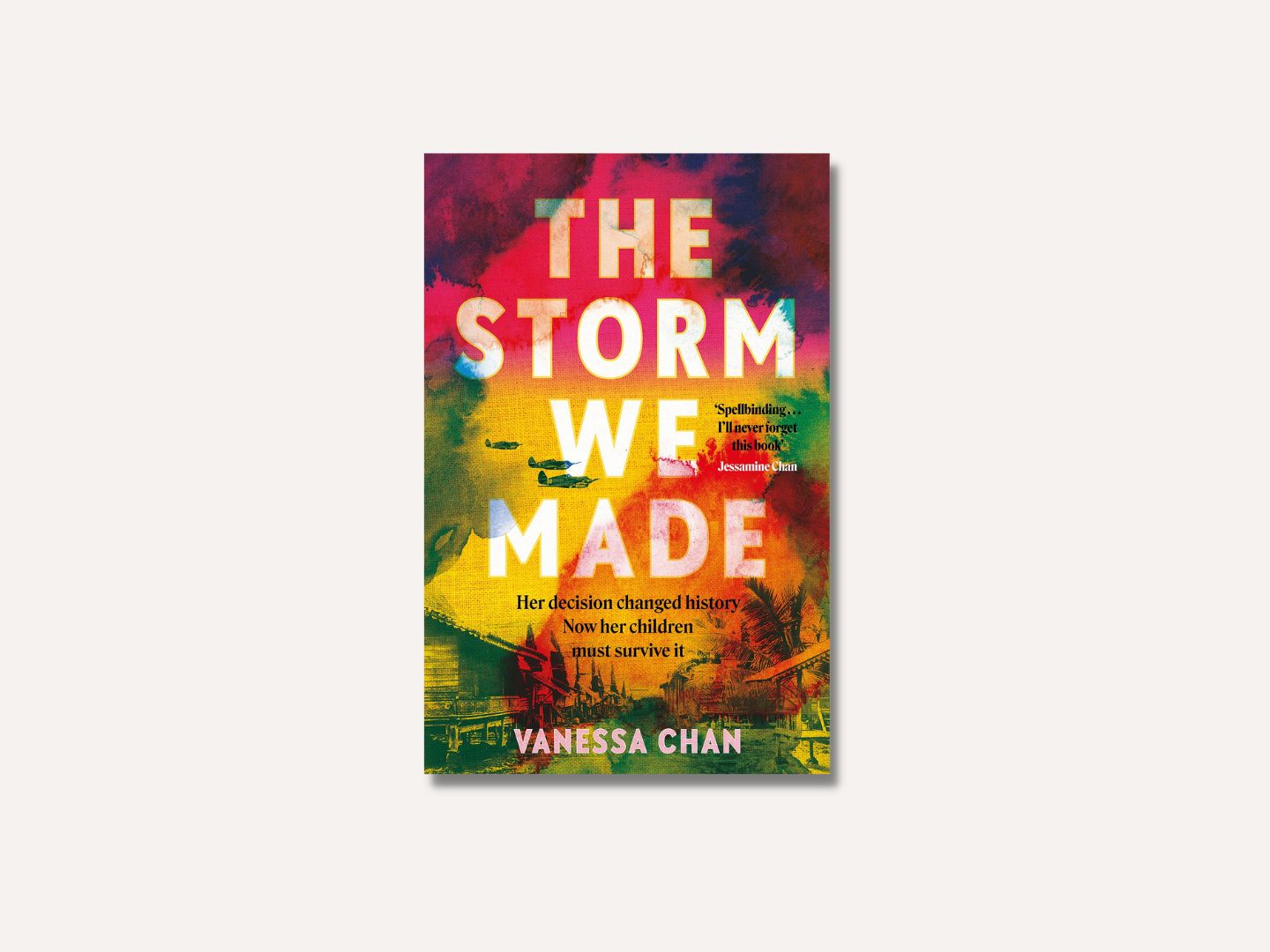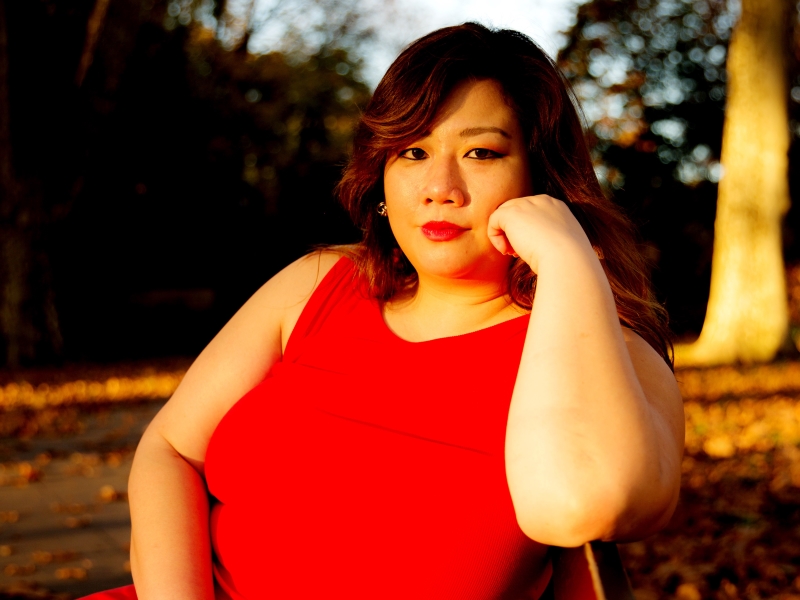
Chan: The truth is that I wrote this book to give myself and my family something to hold on to during a time of great personal grief (Photo: Hodder & Stoughton)
Vanessa Chan thought she had read it wrong when her literary agents emailed over the figures for American rights to her debut novel and a story collection in February 2022.
“It was unbelievable,” Chan says. “I was actually in Malaysia for Chinese New Year when the US auction closed. I immediately told my grandmother, who laughed, patted me on the back, and told me to please complete sweeping the floor. Business as usual in the Chan household!”
The Storm We Made sealed the seven-figure deal after an 11-way auction won by Simon & Schuster. Chan’s second book under contract is The Ugliest Babies in the World. Across the Atlantic Ocean, Hodder & Stoughton beat six other publishers for the UK and Commonwealth rights to Storm, released on Jan 4. It has also been sold in 20 languages and territories worldwide.
The book takes readers from 1930s British Malaya to Japan’s invasion and the final months of WWII alongside discontented housewife Cecily Alcantara, who, in desiring purpose and something bigger than herself, is enticed into espionage by a Japanese spy’s ideology, and then the man himself, General Fujiwara. Cecily and her children — Jujube, Abel and Jasmin, aged 17, 15 and eight respectively — narrate events that unfold at home and around them in alternate timelines, against the backdrop of colonisation, warfare, destruction, and the consequences of power struggle and an ordinary woman’s actions.
Grandma’s reaction to the happy news was not so much blasé as typical. After all, her war stories which Chan lapped up were told “as a throwaway, where the emotions she presented did not match with the subject matter”. That, and her accounts of life as a teenager during the Occupation, gripped her Malaysia-born-and-raised first grandchild, who excavated truths via “oral scavenger hunts”.
“She told me about cycling home and hearing a loud noise behind her and ignoring it, only to discover later it was an air strike and that her siblings, fearing they’d lost her, had dug through the rubble looking for her arms and legs. She told this story with amusement, as though she’d played a prank on her siblings by cheating death, but I was stricken,” Chan says.
“When I was writing the book, sometimes I’d get choked up because it’s a terrible thing to know that people you know and love had to live through such terrible atrocities in the not-so-distant past.”
vanessa_chang.jpg

The book title represents both the literal physical storms in Malaysia and the metaphorical ones in each of the characters who are trying to stay alive, she explains. In a way, writing took her through a very tough time in her life, when she lost her mother and uncle within two weeks.
“I always knew that in the book, there would be three children trying to survive the war, but their mother, the spy, came to me later, when my mother died during the pandemic. I was stuck and unable to fly to be with her during her last days, unable to go anywhere, in fact. So, I decided to give myself a bit of joy by writing about a woman spy who gets to run around making decisions — mostly poor ones — to give her the agency I felt I didn’t have then.”
Chan builds on the idea that women at the time, if they were doing their assigned roles and not causing waves, went unnoticed, which means they can get away with many things — espionage in Cecily’s case. “The family aspect is important to her because, yes, she was physically attracted to Fujiwara, but what motivated her longer term was the idea, however misguided, that with an ‘Asia for Asians’, she would build a better, brighter future for her children.”
Amid the secrets and betrayals Cecily has to grapple with, she finds an unlikely friend. “I do think women are able to develop deep and wonderful friendships with other women fairly quickly that are joyous and pure. I wanted to explore the purity of Cecily’s friendship with Lina, to see whether that would give her a pause in her ruthless ambitions.”
The four voices work well, going back and forth between 1935 and 1945 as they piece the story from different perspectives. Because they are very distinct characters, keeping them separate was not difficult, the author says.
“I really enjoy writing in multiple points of view because I come from a large extended family and am used to everyone talking at the same time! The real challenge was keeping the timelines and plot aligned to make sure there were no continuity issues. It required a lot of pacing around and muttering to myself!”
Discordant opinions often lead to arguments of good and bad, and right and wrong. Does that intrigue her?
“I love characters [who face] some uncertainty about who or what is good and bad because that feels more human. We exist in uncertain, grey areas and morality is entirely dependent on circumstances. You never know how you are truly going to act, and whether your principles will truly hold unless you are faced with the need to survive.
“Ultimately, though, I wanted to write a book about ordinary people living through extraordinary times — kind of like we are now as the generation of the pandemic. About regular people facing the daily minutiae of being a family, and the things they would have to do when circumstances put them to the test.”
The Storm We Made started as homework assignment for a writing class: write about someone who does something repetitive. She came up with a short story about a girl running through a series of checkpoints trying to make it home during the war, while recalling the misfortunes befalling her family.
“When I turned it in, I thought it was a throwaway assignment to mark the end of the class, and forgot about it. But my teacher wrote to tell me — perhaps, just perhaps — this was the beginning of a novel. I remember her handwritten comments: ‘Keep this precious thing close, and keep writing it.’ It was then that I started putting pen to paper, drawing inspiration from the stories my grandmother had told me over the years.
“I never intended for it to be a novel, nor did I know I had the ability to write one. But a testament to teachers and their ability to see the future — my writing teacher in 2019 was able to foresee a brighter future for my homework assignment than just going in the rubbish bin! To be fair, I think these stories about the war had been percolating in me for a long time. I had lived with them and internalised them but didn’t realise it, and I needed the right motivation to release them onto the page.
“The truth is that I wrote this book to give myself and my family something to hold on to during a time of great personal grief. Untold stories become history only when they are written down — and so I wrote them down.”
Before turning to writing, Chan, a University of California, Berkeley graduate in political economy, worked for five-and-a-half years at Facebook as director of communications. Between 2019 and 2021, she did a master of fine arts (fiction) at The New School in New York City.
An early start in reading probably helped seed her literary interest. As a child, she read everything — cornflake boxes, packaging, notices on walls, instruction manuals, every newspaper she could get her hands on. Chan also devoured British children’s books: Enid Blyton and Roald Dahl were perennial favourites, as were the Emily series by L M Montgomery. But books were expensive, so she would reread them constantly, and buy them second- and third-hand from dusty photostat shops doubling as second-hand bookshops.
These days, she enjoys reading literary page-turners with morally ambiguous protagonists, like the room salon women in Frances Cha’s If I Had Your Face, the murder suspects in Kwon Yeo-sun’s Lemon, the twins in Brit Bennett’s The Vanishing Half, or the bumbling windshield wiper entrepreneur in Kirstin Valdez Quade’s The Five Wounds.
Writing aside, she loves watching TV, from soap operas to first-responder dramas and historical miniseries, and shows about unlikely detectives and spies. “Two of my favourites are that ’90s TV show Alias with Jennifer Garner, and a famous Australian TV series about a stylish, lusty PI called Miss Fisher’s Murder Mysteries, which were probably what led me to pick espionage as the unlikely job my protagonist would have.”
Looking ahead, Chan says there is no publication date for The Ugliest Babies in the World yet. The collection is about “feral girls in post-colonial Malaysia who are trying to grow up, some too quickly. They’re trying to figure out who they are, and why they are the way they are”. Again, not your typical characters from this unconventional writer.
This article first appeared on Jan 8, 2023 in The Edge Malaysia.


